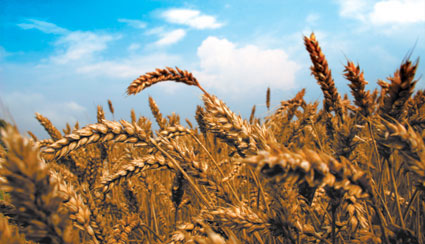Right as Rain
or Common Grace, Uncommon Grace
“…love your enemies, bless those who curse you, do good to those who hate you, and pray for those who spitefully use you and persecute you, that you may be sons of your Father in heaven; for He makes His sun rise on the evil and on the good, and sends rain on the just and on the unjust.” Matthew 5:44-45
Most “Bible contradictions” display our ignorance of literary forms, history, or customs. Further study always vindicates the Bible. Sometimes, however, the “contradiction” is just a misunderstanding of the way God works; a question of timing.
The supposed contradiction I want to discuss is this: if God punishes the wicked, how can He also send rain on the just and the unjust?
Well, we know that the wheat and weeds grow side by side. The kingdom of heaven grows amongst the kingdom of Herod. It’s not until the final parousia that a judgment is made. The same could be said of every week, and every day. All of these periods follow the same pattern of planting, growing and harvest. Those who stand before the Lord on Sunday are part of a bread and wine harvest (a la Rev. 14) and those who refuse to attend, well, they’ll keep, won’t they?
So, in turning the other cheek, walking the extra mile, blessing those who curse us, praying for those who persecute us (and in our culture we are rarely truly called on to do much of this at all), we are co-labourers with the farming Father. His blessings are both a call to repentance and an opportunity for men to compound their sins. Our acts of kindness make both the wheat and the weeds grow, but only the Father knows which is which for sure.
“You have lived on the Land in pleasure and luxury; you have fattened your hearts as in a day of slaughter.” James 5:5
Doug Wilson once wrote about a family around the dinner table. After saying grace, one of the children (very perceptively) asked his father how he knew that they were beloved of God and not the wicked being fattened for the slaughter. Both the righteous and unrighteous enjoy God’s blessings, common grace. [1]
The difference is gratitude, a virtue of which the Spirit is constantly convicting the saints, particularly in the affluent west. As a family, we gather around the Tree of Life, the bread of priesthood, and, unlike our first father, we are grateful. There is bread and wine enough for everyone. How we use it displays our worldview for all to see. Finicky rules don’t help matters at all, because our gratitude can be displayed in both our fasting and our feasting. It is the attitude at the heart of it all that concerns God, the fount that renders these acts holy or unholy.
“Behold, this was the iniquity of thy sister Sodom, pride, fulness of bread, and abundance of idleness was in her and in her daughters, neither did she strengthen the hand of the poor and needy.” Ezekiel 16:49
Ezekiel here refers to the kingdom of Israel. The bread was a blessing from God. Her sin was ingratitude and discontentment. The Lord used Assyria, then Babylon, to bring an end not only to the northern kingdom, or even both Ephraim and Judah, but to the entire Canaanite “world.” That was the day the rain on both just and unjust stopped. After a period of famine, the other kind of rain started, and the Gentiles rushed in like a flood. The righteous and the wicked alike were cut down to make way for a new order.
Until then, the righteous are part of God’s blessings upon the wicked. But at the last day, the righteous are also part of the curses upon the wicked. The saints call down judgment from heaven and the wicked are consumed. It is all a question of timing. Are we currently called to be dew from heaven, or its open floodgates? Both are righteous.
“Dear friends, don’t try to get even. Let God take revenge. In the Scriptures the Lord says, “I am the one to take revenge and pay them back.” The Scriptures also say, “If your enemies are hungry, give them something to eat. And if they are thirsty, give them something to drink. This will be the same as piling burning coals on their heads.” Romans 12:19-20 [CEV]
The same disciples that Jesus spoke these “kingdom” words to were given a different ministry at the end of the age, as “two (legal) witnesses” against the murderous harlot of apostate Judaism. [2] Then they became coals of fire from the Altar in heaven:
“These have power to shut heaven, so that no rain falls in the days of their prophecy; and they have power over waters to turn them to blood, and to strike the Land with all plagues, as often as they desire.” Revelation 11:6
__________________________________
[1] Do you think I can find this when I need it?
[2] On the apostolic church as “two witnesses”, see: Slavery to Sabbath in Revelation 5-11


























